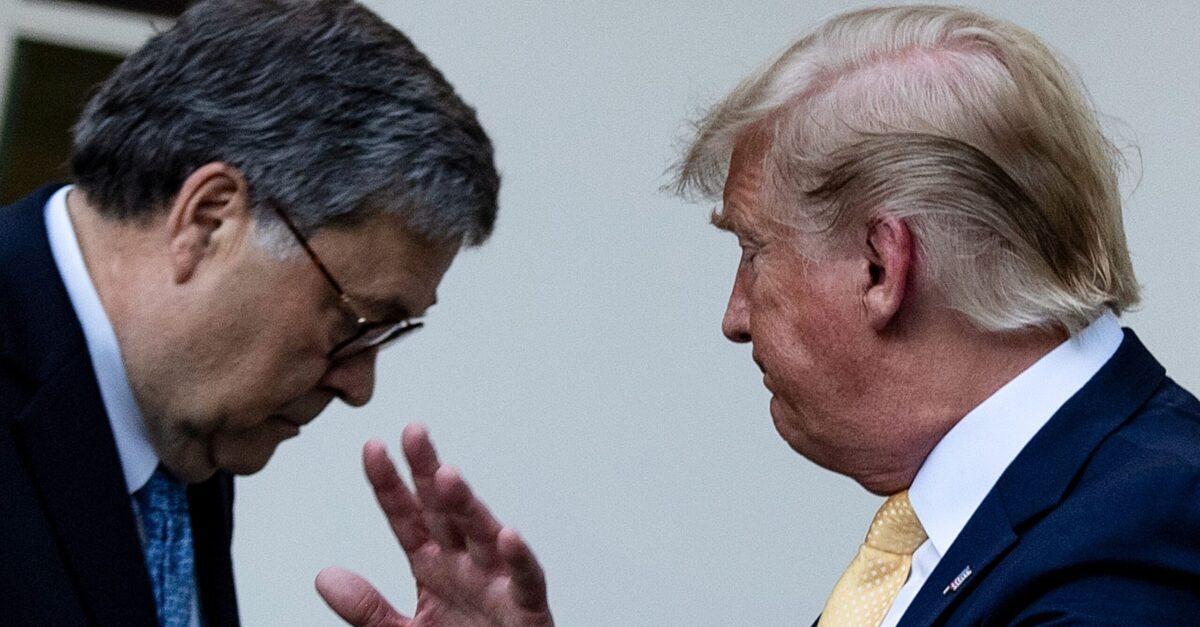
A federal judge who has been highly critical of the U.S. Department of Justice (DOJ) under President Donald Trump has a spreadsheet full of questions for the agency to answer about the undredacted Mueller Report. U.S. District Judge Reggie Walton issued a brief order on Monday outlining his request for the DOJ in anticipation of a hearing scheduled for July 20.
Walton’s order outlines the events leading up to the request so far:
On March 20, 2020, the [DOJ] submitted the unredacted version of the report prepared by Special Counsel Robert S. Mueller III regarding his investigation into Russian interference in the 2016 United States presidential election to the court for its in camera review. After reviewing the unredacted version of the Report, on June 8, 2020, the Court ordered the [DOJ] to “appear before the Court for an ex parte hearing to address the Court’s questions regarding certain redactions of the Mueller Report.”
Note: An “in camera review” refers to a private review done by a judge alone and an “ex parte hearing” refers to a hearing between a judge and one side of a dispute, respectively.
“To accord the [DOJ] knowledge of the questions that the Court has regarding some of the redactions prior to the ex parte hearing, the Court has prepared an Excel spreadsheet that catalogues these questions,” the two-page order continues.
The basic legal dispute here is a Freedom of Information (FOIA) lawsuit filed in March 2019 by the Electronic Privacy Information Center, BuzzFeed and BuzzFeed News reporter Jason Leopold.
So far, the plaintiffs have scored a significant number of victories.
As a threshold matter, Walton noted that he was not particularly pleased with Attorney General Bill Barr’s overall handling of the Mueller Report. The judge said that Barr’s behavior had resulted in “grave concerns about the objectivity of the process that preceded the public release of the redacted version” of the report.
“These circumstances generally, and Attorney General Barr’s lack of candor specifically, call into question Attorney General Barr’s credibility and in turn, the Department’s representation that ‘all of the information redacted from the version of the Report released by the Attorney General’ is protected from disclosure by its claimed FOIA exemptions,” he added, previewing the case’s general trajectory.
Walton issued his in camera demand in March of this year. In June, he set the current schedule for the DOJ to explain exactly why the Mueller Report contains the redactions that it does.
The upcoming hearing could be brutal for the DOJ, given that Judge Walton previously said be he believed Attorney General Barr “distorted” the Mueller Report’s findings.
But Monday’s order offers something of a potential out for Barr and his subordinates; the agency’s responses to the questions and context presented on the spreadsheet may mean the planned-for hearing is ultimately unnecessary.
“The Court will advise the [DOJ] as to whether the [DOJ’s] written explanations obviate the need for the ex parte hearing currently scheduled,” a footnote explained.
Read the full order below:
Reggie Walton Spreadsheet Order by Law&Crime on Scribd
[image via BRENDAN SMIALOWSKI/AFP via Getty Images]